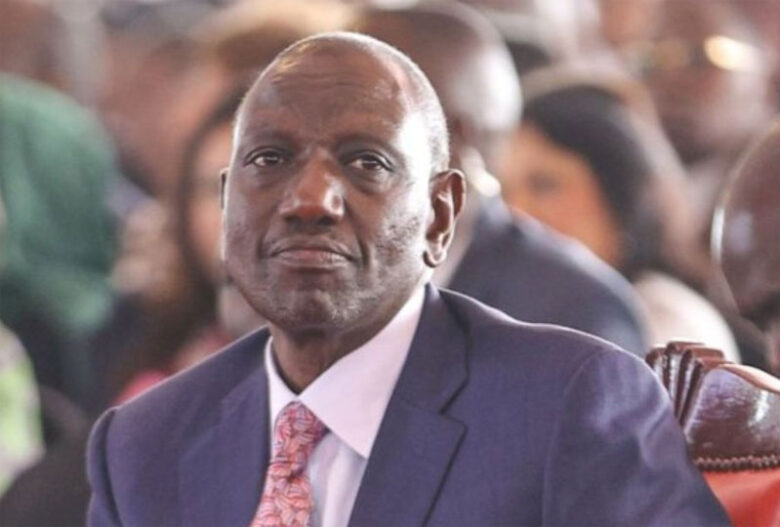Kenya’s controversial tax reform is a package that was introduced by the government of President William Ruto in 2023, aiming to raise revenue and reduce the fiscal deficit.
The reform has however faced strong opposition from various sectors of society, including businesses, religious leaders, and opposition lawmakers.
Some of the main features of the reform include:
– 16% value-added tax (VAT) on petroleum products, which was previously subsidised at 8%.
– Increase in the income tax rate for high earners, from 30% to 35%.
– 1.5% housing levy and a 2.5% medical insurance levy, which will be deducted from employees’ salaries.
– 15% excise duty on internet data services.
The government argues that the reform is necessary to meet the conditions of a $2.4 billion loan from the International Monetary Fund (IMF), which was approved in February 2023. It claims the reform will fund flagship projects, such as the Big Four Agenda, which focuses on housing, health, food security, and manufacturing.
The IMF has praised the reform as a “bold and ambitious” step to address Kenya’s fiscal challenges and support its economic recovery.
The initiative has sparked widespread protests and lawsuits, as many Kenyans fear that it will increase the cost of living and worsen economic hardship. Critics say that the reform is unfair, regressive, and unconstitutional, and that it will hurt the poor and the middle class the most.
Opposition to the reform includes the Kenya Human Rights Commission, which filed a petition in the High Court challenging the legality of the reform.
The Kenya Conference of Catholic Bishops also issued a statement urging the government to suspend the reform and engage in dialogue with stakeholders.
The Coalition for Reforms and Democracy, an opposition alliance led by former Prime Minister Raila Odinga, called for a nationwide boycott of the reform and a mass demonstration on June 30, 2023, whilst the Kenyan Private Sector Alliance, expressed concerns over the impact of the reform on business environment and competitiveness of the economy.
Blow to William Ruto as court blocks controversial housing tax
The Court of Appeal has now rejected Kenya’s government bid to dismiss an appeals case challenging the contentious housing tax.
Recall that the High Court ruled in November that the 1.5% monthly levy unfairly targeted workers in the formal sector, prompting a halt in payments.
However, on Friday, January 25, 2024, the Court of Appeal upheld the suspension of the 1.5% gross salary deduction for the housing levy, allowing citizens to continue refraining from payment until the case concludes. Despite the government’s efforts to resume tax collection during this period, the court’s decision remains in effect, and the government is expected to file an appeal.
The controversial levy, initiated by the government last July, aimed to deduct funds from the gross salaries of both locals and foreigners to finance the construction of affordable housing for low-income earners. This move faced opposition and widespread dissatisfaction from Kenyans, who were already burdened by various taxes introduced by President William Ruto.
The government’s argument that suspending the levy would jeopardize jobs under the housing program and breach existing contracts was rejected by the court. While the final decision is pending, the ruling provides relief for many Kenyans.
This development follows last week’s approval by the appeals court of another controversial healthcare insurance levy, requiring individuals to contribute 2.75% of their monthly salaries to a social healthcare program.
The housing levy case is one of several petitions contributing to tensions between the judiciary and executive branches. President Ruto has accused allegedly corrupt judges of collaborating with the opposition to undermine national development projects.
Whilst the reform is still pending parliamentary vote and possible amendments, the outcome will not only have significant implications for Kenya’s political and economic stability, as well as its relations with the IMF and other international partners. But it’ll also set an example for other African countries that are considering implementing such policies.
YOU SHOULD NOT MISS THESE HEADLINES ON PRUDENCE JOURNAL
Jumia stops food delivery services in Nigeria and other African markets over profitability concerns
Tems opens up on pregnancy rumours with US rapper Future, says she got death threats
US House of Reps launches Republican impeachment inquiry against Biden
Afrobeat superstar Wizkid donates N100 million to children for Christmas
South African singer Zahara dies of liver complication at 36
Nigeria’s central bank to freeze accounts without BVN or NIN
Elon Musk blasts advertisers who pulled spending from X
70-years-old woman delivers twins after 40 years of barrenness
Israel Fails to Provide Evidence of Hamas Command Center in Al-Shifa Hospital Raid









Got a Question?
Find us on Socials or Contact us and we’ll get back to you as soon as possible.